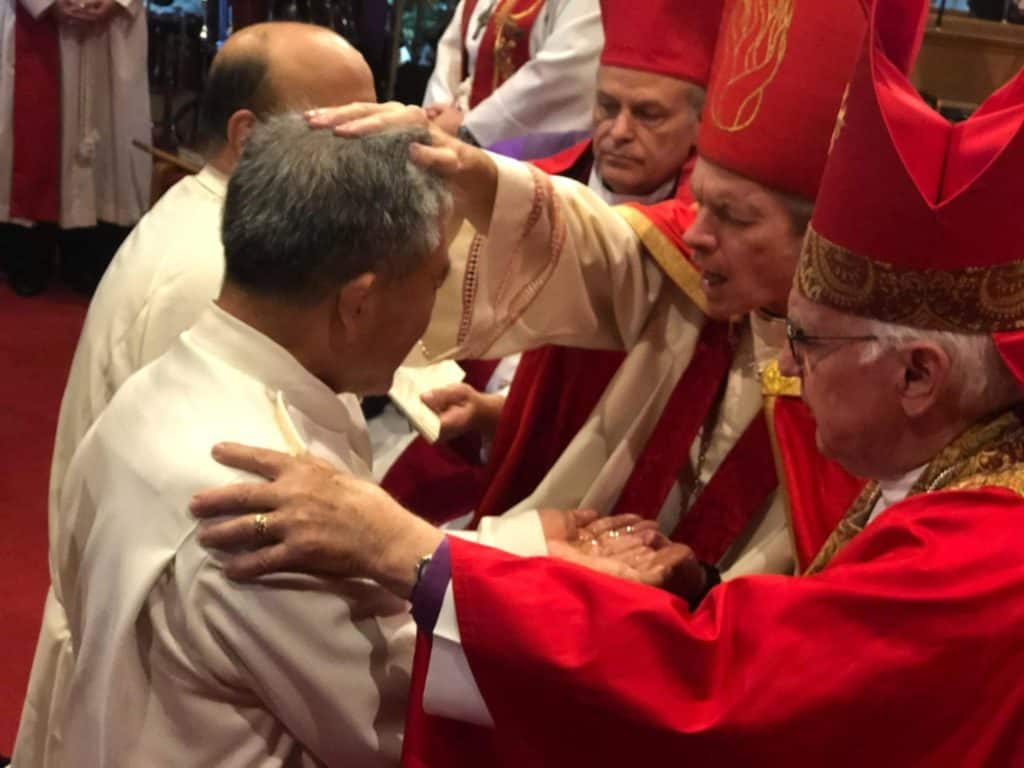Individuals who wish to enter a path leading to ordination are expected to meet the criteria articulated in the Title III, Canon 2 of the CEEC.CHURCH Canons.
These elements deal with:
- Baptism, confirmation, and biblical knowledge of the applicant
- Character requirements, as listed in 1 Timothy 3 and Titus 1
- Matters related to married aspirants
- Theological training requirements
CEEC.CHURCH, sits within Historic Succession and accepts the threefold offices of the Church. That of Deacon, Presbyter (Priest) and Bishop.

Deacons
Deacons are called to a special ministry of servanthood directly under their bishop to serve all people; particularly the poor, the weak, the sick, and the lonely. Deacons interpret to the Church the needs, concerns, and hopes of the world.
A deacon is to study the Holy Scriptures, to seek nourishment from them, and to model their life upon them. Deacons are to make Christ and His redemptive love known, by word and example, to those among whom they live, and work, and worship.
They assist the bishop and priests in public worship and in the ministration of God’s Word and Sacraments, and carry out other duties assigned to them from time to time.
At all times, a deacon’s life and teaching are to show Christ’s people that in serving the helpless they are serving Christ himself.
The Diaconate is the order of ordained Deacons. CEEC.CHURCH stresses the importance of the Diaconate and sees the Diaconate as a full and equal order.
“A deacon (literally, “servant”) can be a significant example of what all ministries, whether of clergy or laity, can become in our times”. (Massey H. Shepherd, Jr.)
Presbyters (Priests)
Priests are called to work as a pastor, priest, and teacher, together with their bishop and fellow priests, and to participate in the councils of the Church. In the CEEC.CHURCH, the terms “presbyter” and “priest” are used interchangeably.
Priests are to proclaim by word and deed the Gospel of Jesus Christ, and to fashion their life in accordance with its precepts. They are called to love and serve the people among whom they work, caring alike for young and old, strong and weak, rich and poor. Priests are to preach, to declare God’s forgiveness to penitent sinners, to pronounce God’s blessing, to share in the administration of Holy Baptism and in the celebration of the Eucharist, and to perform other ministrations entrusted to them.
In all they do, priests are to nourish Christ’s people from the riches of His grace, and strengthen them to glorify God in this life and in the life to come.